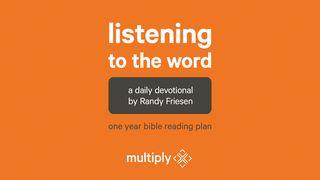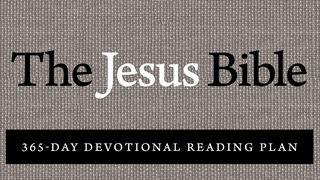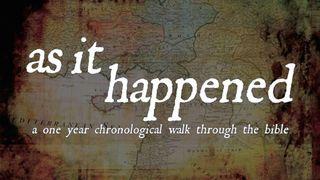For The Love Of GodSample

THE VISION OF THE TWO BASKETS of figs (Jer. 24), one “very good figs, like those that ripen early” (Jer. 24:2—the early ones ripened in June and were viewed as a delicacy, cf. Isa. 28:4) and the other basket full of figs “so bad they could not be eaten” (Jer. 24:2), is plain enough. The good figs point to the Israelites who have already been sent away into exile in “the land of the Babylonians” (Jer. 24:5). God will watch over them and bring them back. He will give them a heart to know the Lord. “They will be my people, and I will be their God, for they will return to me with all their heart” (Jer. 24:7). By contrast, the poor figs point to Zedekiah and his officials and the remainder of the people in Jerusalem. They will become “a reproach and a byword, an object of ridicule and cursing” (Jer. 24:9). They will not remain in the land. They will be banished, and God will follow them with “sword, famine and plague” (Jer. 24:10).
This analogy calls forth two reflections. First, it is a reversal of popular expectation, both in Jerusalem and in the exilic community in Babylon. The Jerusalemites were tempted to think that they were the elite, since they had been spared: God had not sent them into exile. The exiles were the rubbish; those left in the land were the faithful remnant. The exiles were tempted to think the same thing. They did not want to contemplate the destruction of Jerusalem and the temple, for then there would be no “home” to go home to. So they tended to idealize the people who were left behind, praying that God would one day restore the exiles to the faithful remnant in Jerusalem. But God here says that the real situation is precisely the reverse. Those left behind in Jerusalem are disgusting and will be destroyed. The good figs are in exile, and God will bring them back to the land. In short, the remnant is in exile. The same theme (without the imagery of the figs) is developed in Babylon by Jeremiah’s contemporary, Ezekiel: e.g., Ezekiel 11:14-21.
Second, this is such an astounding reversal of popular expectations that it prompts the reader to think of a host of other reversals in the Bible. One thinks of the mighty Egyptian empire against the Israelite slaves; of the rich man and Lazarus; of the beatitudes of Jesus that promise the kingdom to the poor in spirit. Think of as many such reversals as you can, both within the pages of Scripture and in later history. God delights to exalt the humble and to humble the exalted. After all, our Redeemer died on a cross. So why should thoughtful Christians scramble for power and position, instead of for humility and faithfulness?
This analogy calls forth two reflections. First, it is a reversal of popular expectation, both in Jerusalem and in the exilic community in Babylon. The Jerusalemites were tempted to think that they were the elite, since they had been spared: God had not sent them into exile. The exiles were the rubbish; those left in the land were the faithful remnant. The exiles were tempted to think the same thing. They did not want to contemplate the destruction of Jerusalem and the temple, for then there would be no “home” to go home to. So they tended to idealize the people who were left behind, praying that God would one day restore the exiles to the faithful remnant in Jerusalem. But God here says that the real situation is precisely the reverse. Those left behind in Jerusalem are disgusting and will be destroyed. The good figs are in exile, and God will bring them back to the land. In short, the remnant is in exile. The same theme (without the imagery of the figs) is developed in Babylon by Jeremiah’s contemporary, Ezekiel: e.g., Ezekiel 11:14-21.
Second, this is such an astounding reversal of popular expectations that it prompts the reader to think of a host of other reversals in the Bible. One thinks of the mighty Egyptian empire against the Israelite slaves; of the rich man and Lazarus; of the beatitudes of Jesus that promise the kingdom to the poor in spirit. Think of as many such reversals as you can, both within the pages of Scripture and in later history. God delights to exalt the humble and to humble the exalted. After all, our Redeemer died on a cross. So why should thoughtful Christians scramble for power and position, instead of for humility and faithfulness?
Scripture
About this Plan

A daily devotional for discovering the riches of God's word: For the Love of God is a daily devotional designed to walk a person through the Bible in a year while assisting the reader in discovering the riches of God's Word. Our hope is that this daily devotional will deepen your understanding and appreciation of God's Word, for the love of God.
More
We would like to thank The Gospel Coalition for providing this plan. For more information, please visit: thegospelcoalition.org









